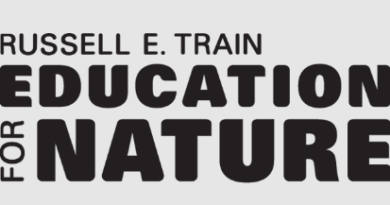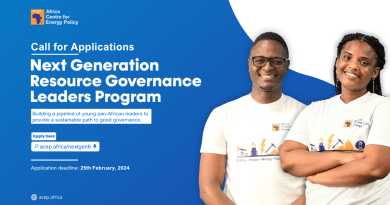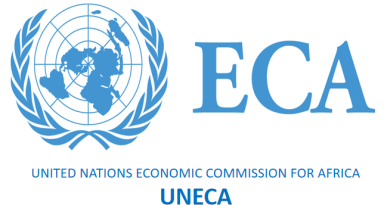Apply for the Leadership & Advocacy for Women in Africa Fellowship Program for study at Georgetown University (Funded)
The Leadership & Advocacy for Women in Africa Fellowship Program (LAWA Fellowship Program), established in 1993 at Georgetown University Law Center, is dedicated to empowering women’s human rights lawyers from Africa. These remarkable individuals are committed to making a difference in their home countries and uplifting the status of women and girls throughout their careers.
Spanning approximately 14 months, the LAWA Program kicks off in July with the Fellows attending courses on American Law and U.S. Legal English. From August to May, the Fellows pursue a Master of Laws (LL.M.) degree at Georgetown, focusing on international women’s human rights and completing a significant graduate thesis. Additionally, Fellows have the opportunity to apply for specialized LL.M. or certificate programs.
During their time in the program, Fellows engage in professional development seminars and networking events with recent U.S. law school graduates who are actively working in the field of women’s rights. Upon graduation, Fellows may choose to pursue an internship, although it’s important to note that not every Fellow secures an internship placement or is selected by an organization.
The LAWA Fellowship Program is a transformative journey that equips these exceptional women with the knowledge, skills, and connections to create lasting change in their communities.
Apply for the Leadership & Advocacy for Women in Africa Fellowship Program for study at Georgetown University (Funded)
Requirements:
To be eligible for a LAWA Fellowship, candidates must be ready to cover all additional expenses, such as visas, travel, housing, utilities, food, clothing, and health insurance. It is important for candidates to demonstrate to the U.S. Embassy that they have the necessary funds to cover these expenses when applying for a visa. The total amount required is U.S. $31,200.
In order to be considered, you must be a women’s human rights lawyer from Africa and hold an LL.B. or other law degree. Preference is given to candidates who are currently living and working in Africa and do not already have a Masters’ Degree.
While the strongest applicants typically have about five to ten years of experience after law school, candidates with less or more experience will still be considered. However, those with no work experience directly from an LL.B. degree or other law school will not be considered.
Regardless of gender identity, all individuals who are dedicated to women’s rights are strongly encouraged to apply.
As part of the LAWA Program, all applicants must commit to returning to their home countries after completing the Fellowship and strive to promote women’s human rights throughout their careers.
Strong English language skills, both written and oral, are a must for all applicants. Language barriers have been a major obstacle for LAWA Fellows in the past.
Proficiency in using computers for drafting papers and conducting research is required for the LAWA Program. Candidates are advised to learn basic computer skills before their arrival to make the transition smoother. At the very least, improving typing speed is recommended.
The LAWA Program is calling for individuals who are prepared to dive into a rigorous course of study. As a LAWA Fellow, you will have the opportunity to take a required course and choose from a variety of elective courses throughout two academic semesters. But be prepared, because each class will demand your full attention and dedication.
In order to succeed in this program, you must be willing to put in the effort. Get ready to immerse yourself in countless pages of reading as you prepare for each class. And that’s not all! As a Fellow, you will also be required to produce a Masters’ Thesis, which will involve intense research, writing, and editing. This is no small task, as your thesis must be a minimum of 40 pages long, with multiple drafts.
Completing the LAWA Program is no easy feat. It requires exceptional focus and a tremendous amount of hard work. So, if you’re not ready to make this serious academic commitment, then this program may not be the right fit for you.
But wait, there’s more! Let’s talk about the benefits of being a LAWA Fellow. The LAWA Program understands that pursuing an LL.M. degree and additional professional development training can be financially challenging. That’s why they offer financial assistance to candidates who may not be able to afford it otherwise.
As a LAWA Fellow, you will receive full tuition coverage for the mandatory Foundations of American Law and Legal Education course, which takes place from mid-July to mid-August. This alone is a benefit worth $5,000! But that’s not all. The program also covers the cost of the Master of Laws (LL.M.) degree from Georgetown University Law Center, which is valued at an impressive $78,422. And to make your experience even more comfortable, on-campus housing is provided for the first three weeks of the summer program, a benefit worth $1,400.
But the benefits don’t stop there! LAWA Fellows also receive $2,000 towards the cost of health insurance, ensuring that you have the necessary coverage during your time in the program. Additionally, you will be reimbursed up to $300 for required textbooks for each of the two semesters. This means you can focus on your studies without worrying about the financial burden of purchasing textbooks.
So, if you’re ready to take on this incredible opportunity, apply now and join the ranks of LAWA Fellows who have gone on to achieve great
Application procedure
To apply, make sure you have all the necessary documents. Incomplete applications won’t be considered, so pay attention to detail! Here’s what you need to submit:
1. Fill out the Application Form completely, and don’t forget to answer all three essay questions.
2. Include your current Resume or CV, which should highlight your employment history. Be sure to mention both paid and volunteer positions, including the name of your employer, location of your employment (city, country), dates of your employment (start and end dates), and a description of your work for each position you’ve held. Also, provide details about your education from high school to the present, including the name and location (city, country) of the institution, dates attended (including date of graduation), degree awarded, grade point average or your class rank and number of students, and your participation in any extracurricular activities. Don’t forget to mention any published materials or significant research papers you’ve worked on, as well as any special honors, awards, scholarships, or fellowships you’ve received. Lastly, include any memberships in organizations or community activities you’ve been involved in, including any leadership roles.
3. You’ll need to submit Two Letters of Recommendation (letters of reference) from individuals who know you well and can speak to your commitment to advancing women’s human rights in your country, your legal abilities, and your work. It’s important that at least one of these references is willing to assist you professionally upon your return to your country. The letters should specifically mention your skills and knowledge, so make sure your recommenders are aware of this. They can either email the letters directly or scan and send them as email attachments along with the rest of your application materials.
Remember, attention to detail is key, so make sure you have everything in order before submitting your application!
Transcripts
Get a hard copy of your official law school transcript(s) and send it to Jill C. Morrison at Georgetown University Law Center. The address is 600 New Jersey Avenue NW, Hotung 5000K, Washington, DC 20001.
Remember, photocopies or emails won’t cut it. Your institution must send the original transcript directly to the address mentioned above. We know it might cost you a bit, but it’s unavoidable. Also, don’t forget to include an explanation of the grading and ranking system.
Oh, and just so you know, we won’t be returning the transcripts to you. We’ve had some amazing candidates miss out on a spot in the program because they didn’t send their official transcripts. So, make sure you comply with this requirement and send your transcript as soon as you’re offered an interview.
If you’ve applied in previous years, no need to resend your transcript. However, you do need to submit your revised application form, updated resume, and updated recommendations.
Send your completed application via e-mail to [email protected] on or before Friday, January 19, 2024. No need to apply separately to Georgetown. Please FAQs. If you cannot find the answers you seek email [email protected]. Check your email frequently beginning February 1st, 2024, to see if you are called for interview. If you do not respond as resquired you will be replaced.





